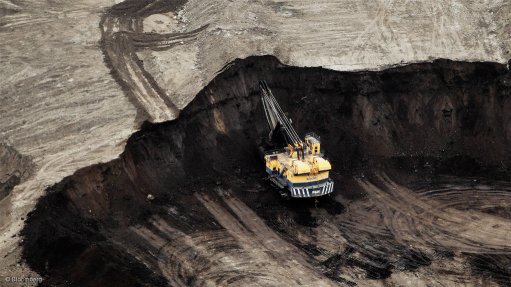
Photo by: Bloomberg
TORONTO (miningweekly.com) – Despite oil prices having seemingly stabilised, oil- and-natural-gas-producing Alberta's economy was headed for an overall decline in real gross domestic product this year, The Conference Board of Canada's ‘Provincial Outlook: Spring 2015’ found.
The economy of the western Canada province was expected to contract by 0.7% this year, with growth expected to resume next year, albeit at a moderate 1.1%.
"Alberta's economic performance will be underwhelming this year and the next, especially compared with recent years. Oil prices remain well below break-even levels for most new projects in the oil patch and conditions are not expected to turn around until sometime next year,” associate director of provincial forecast Marie-Christine Bernard explained.
Despite the dramatic drop in oil prices in recent months, the negative impact on Alberta's economy would be less severe than in the 2008/09 global recession and financial crisis.
The Conference Board said steep reductions in oil-patch investments were evident in the number of oil drilling rigs in operation. Drilling was down 44% during this year's critical winter season compared with the same period a year earlier.
The resulting job losses in the construction and mining sectors – estimated at about 24 000 – were expected to hurt the housing market and retail sales.
On the positive side, the oil and gas sector had built a lot of capacity through its past investments, which was starting to pay dividends in the form of higher output. Nonconventional oil production, or oil from the oil sands mining operations, continued to flow south to refineries along the Gulf Coast, where demand for heavy oil remained high.
Outside the energy sector, the job market seemed to be holding up relatively well. As a result, the unemployment rate in the province was expected to average 5.6% this year – roughly 1% higher than in recent years, but below that of the last oil price shock.
The board cautioned that the newly elected New Democratic Party provincial government could introduce new measures that had not been included in the forecast, as details were yet to be announced.
Over the past decade, the provincial government had, on average, derived 29% of its revenues from the resource sector, mostly in the form of oil and gas royalties. Government revenues were expected to be under pressure this year, not only from lower resource royalties but also from reduced corporate income taxes.
As Alberta, Saskatchewan, Newfoundland and Labrador continued to deal with the impact of low oil prices, other provinces were leading Canada in economic growth in the short term. Economic growth was expected to be strongest in British Columbia, Manitoba and Central Canada over the next two years.